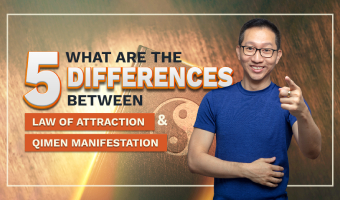In 2001, I came across the influential book "Rich Dad Poor Dad," which fundamentally altered my understanding of the disparities in mindset between the affluent and the less fortunate.
While the concepts seemed somewhat theoretical—something you could stumble upon in countless YouTube videos—I want to share with you the practical insights I've gleaned from decades of personal experiences, interactions with millionaire mentors, and my own journey to success.
Here’s what I've learned about the contrasts in mindset between the rich and the poor.
Disclaimer: It's Not About Good vs. Bad
Before we delve into the six key differences in mindset, let's clear the air with a disclaimer. Acknowledging that money isn't everything, there are indeed more significant aspects of life like time, relationships, and health.
However, possessing wealth undoubtedly opens up more options and choices. Most importantly, being rich or poor does not equate to being a good or bad person.
Wealth can amplify your inherent traits, but it doesn't change who you are at your core.
1. Generosity: A Hallmark of Wealth
Generosity is often synonymous with wealth.
One of the most striking differences is that truly wealthy individuals tend to be generous. This doesn't just mean financially but also in spirit.
Unlike the penny-pinching poor mindset that may focus too much on minor costs, the wealthy invest generously in their health and education—areas I personally never compromise on.
Generosity, to me, also means being generous towards oneself, a concept often overlooked in many cultures where familial and social obligations take precedence.
Even during my early days of financial struggle, I sought affordable means to continue learning and staying healthy, choosing books over pricey seminars and free online resources over expensive courses.
This approach to generosity extends beyond self to how one treats others, balancing personal and communal well-being.
2. Belief in Growth
Wealthy individuals harbor a robust belief in personal growth and continuous learning as paths to improvement. They adopt a mindset that embraces education not just through formal avenues but also through observing others and learning from their own mistakes.
As someone who teaches QiMen Manifestation, I've seen firsthand how the rich use their beliefs to elevate their energy and attract success, rather than chasing it.
For instance, in my QiMen Manifestation Masterclass, I emphasize the importance of aligning your internal mindset and energy to your financial goals. This belief in constant growth creates compounding effects over time, allowing the rich to continually elevate their lives.
3. Strong Faith

The rich possess a profound sense of faith—not necessarily in a religious context but as a fundamental belief in hope and dreams.
This faith allows them to transcend fears that might otherwise hinder their actions. It is the belief in the possible, the hope in the unseen, and the courage to act despite fear.
Utilizing tools like QiMen, they enhance their intuition and focus on manifesting their goals, which is a powerful method for overcoming obstacles and achieving desired outcomes.
My experiences using QiMen Manifestation have shown that enhancing intuition through faith and focus can lead to profound life shifts. The rich choose faith over fear, a decision that propels them toward their goals.
4. Hard Work
There's a common misconception that the rich have an easy life.
On the contrary, the wealthy often work incredibly hard but smartly, focusing on leveraging their strongest skills to generate the most income. They delegate less impactful tasks to others who excel in those areas.
This principle was something I learned only later in life, through studying my personal BaZi and QiMen charts, which helped me understand where my efforts would be most effective.
5. Delayed Gratification
Rich individuals practice the art of delayed gratification, prioritizing investment in assets that will yield long-term benefits over immediate pleasures.
They view money and resources as tools to be invested toward future gains rather than for immediate satisfaction. This perspective helps them evaluate opportunities based on potential long-term returns rather than immediate costs.
This mindset extends to all aspects of their lives, from financial investments to personal and professional development. They understand the value of patience and the compounded returns of time and effort.
This shift in mindset is crucial for substantial financial growth and is often what separates the wealthy from the poor, who might seek quicker, less lucrative returns.
6. Cultivation of Self

Finally, the wealthy believe in the cultivation of one's inner self. This includes physical health, mental resilience, emotional strength, and spiritual growth.
This concept, known in Chinese as 修身 (xiūshēn), emphasizes the ongoing development of character and personal capabilities.
Over the years, I've learned that to change your external circumstances, you must first evolve internally.
Reflecting on my own life, my transformation from a negative, temperamental youth to a mature, successful entrepreneur was fueled by the power of self-cultivation by continuous self-improvement and learning.
Cultivating a strong inner self reflects outwardly, attracting like-minded individuals who further enrich my journey.
In Conclusion
The distinctions in mindset between the rich and the poor are profound and multifaceted. Understanding these can provide a roadmap for personal and financial growth.
As I continue to share these lessons, especially in my QiMen Manifestation Masterclass, it becomes clear that these principles are not just theories but practical guidelines that can lead to significant life changes.
The journey to wealth is as much about cultivating the right mindset as it is about accumulating financial resources.
As you reflect on these points, consider how your own mindset aligns with these principles.
Change begins from within, and adjusting your outlook can be the first step towards a richer life in every sense of the word.













